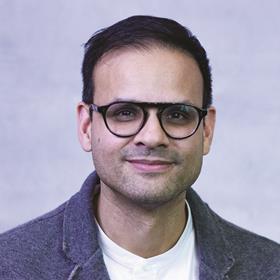While ESG has been high on agendas for some time, Covid-19 has thrust it into the spotlight. With the industry contributing 40% of global carbon emissions, the ‘E’ has taken centre stage so far.

However, the governance and social elements should not be forgotten, and investors are increasingly looking for fund managers that can both achieve sustainable returns and be good corporate citizens.
However, while larger firms have the resources to hire chief impact officers or heads of sustainability to monitor ESG score cards and oversee volunteering programmes, what about smaller firms? At its heart, the most significant impact comes arguably not from the size of a company’s resources or how much it can spend, but how well resources are used to make a real difference.
Being ‘good’ has an intrinsic meaning, and should inspire action from day one, ahead of needing to achieve B Corp or similar status or standards. And businesses big or small have talent at their centre: while employees may volunteer to repaint a community centre or give to charity (both worthy), how much more of an impact might that same business make if it instead leveraged the specific skills of its employees for good?
For example, could investment professionals use that same volunteering slot to provide financial literacy courses to help vulnerable individuals in society overcome barriers? Could they use their business acumen to provide operational advice to charities to support their growth? Or use their network to find people that can? Real estate naturally lends itself to this approach, given the diverse and transferable skills required to be successful in the sector.
Being ‘good’ has an intrinsic meaning, and should inspire action from day one
For example, while investing in the Big Exchange, which promotes inclusivity in finance, we spotted a synergy with an earlier charitable partnership we had made with the House of St Barnabus, which gives employment training and job opportunities to London’s homeless. Bringing the two organisations together will hopefully help the Big Exchange beta-test its financial inclusion app with a segment of the population it would most like to have an impact on.
So making a social impact can be as simple as connecting people – and we adopted this approach when investing in Harry Specters, the luxury chocolatier brand that provides employment and development opportunities for young people with autism. We considered not only the financial contribution we could make, but also how we could help its business grow, and decided to leverage our network to introduce the business to some of our peers including Eastdil Secured, CBRE, CMS, LaSalle, M&G and a number of lenders, most of which put in orders.
We think of these investments as ‘plus plus’ as we are not just giving part of our profits to charity as par for the course, but are also using them to invest in and support social impact ventures. And the real kicker is, through providing both a diversity in their role and a wider purpose, businesses can provide a point of difference to attract talent.
Everyone wants to make a positive contribution to our communities and a focus on the ‘S’ and ‘G’ must be part of a wider strategy incorporating the ‘E’. But perhaps these are the areas we need to think most creatively about. Ultimately, we are all familiar with the axiom not to work harder, but to work smarter. In the same vein, by leveraging the strengths of individual companies, businesses of all sizes can make a real difference.
Sanjay Sethi is a partner at Tokoro Capital





























No comments yet